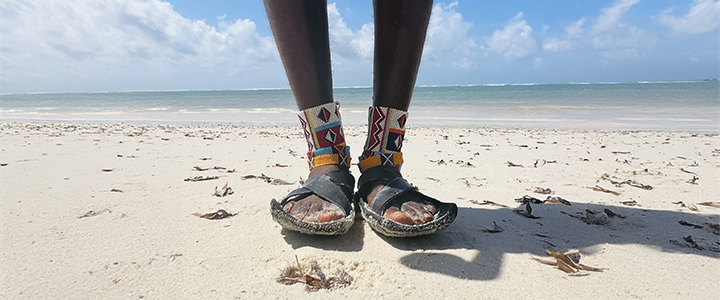
Themes
The Sustainable Travel and Tourism Advanced Research Centre (STTAR Centre) draws on interdisciplinary expertise and focuses on five key strategic priorities and themes.
Expertise in these areas has been consolidated and developed through the pursuit of intellectual excellence underpinned by critical scholarship. This generates new understandings and provides a solid grounding for our research, knowledge exchange and pedagogic practices.
Consumption, marketing and management
Tourism brings together peoples and places. These interactions bring social, cultural, environmental and economic consequences that shape local communities, for better and for worse.
This strand of research investigates the sustainability of tourism destinations and the roles of management, marketing and consumer psychology towards supporting more sustainable and responsible travel and tourist behaviour. It includes the impact of travel on the natural environment and communities.
Expertise
- Dr Robert Lambert
- Professor Simon Mosey
- Professor Jillian Rickly
- Dr Patricio Sanchez-Campos
- Dr Carol Zhang
Accessibility and inclusivity
Our research in this area focuses on the barriers to access for marginalised groups. It includes, marketing communications and representation, the influence of accessibility on tourism behaviour, and how travel and tourism experiences affect everyday life.
Research within this strand includes social inclusion and/or disability diversity, gender identity, and social justice and considers the potential for research impact such as managerial implications, policy recommendations or service intervention.
Expertise
- Professor Jillian Rickly (lead)
- Dr Esther Bott
- Dr Clare Foster
- Dr Andri Georgiadou
- Dr Yangyang Jiang
- Professor Scott McCabe
- Professor Simon Mosey
- Professor Marina Novelli
- Dr Patricio Sanchez-Campos
- Dr Yuwei Xu
- Dr. Yi Wang
- Dr Carol Zhang
Travel cultures
Our research in this area considers questions concerning cultures and practices of travel. Specifically, we explore the controversies of travel, including:
- the role of travel on oppositional geopolitics (implicit in the terms 'East' and 'West', 'North' and 'South')
- how technology mediates new forms of exchange, meanings of travel and networks of power
- how conventional roles of host and guest are being transformed through globalisation to create new types of relational exchanges such as pilgrimage, special interest and niche tourism, hospitality.
We also look at how social-cultural changes impact on social and self-identities in the context of cultural heritage management. Popular and consumer cultures are also considered as interrelated, with marketing being frequently inspired by populist celebrity, media and ideological trends. For example popular travel writers, historians, explorers, documentarists, may break through into popular consciousness by reading and responding to current motivations, attitudes and behaviours.
Expertise
- Dr Carol Zhang (lead)
- Professor Ross Balzaretti
- Dr Hongwei Bao
- Dr Brendan Canavan
- Dr Clare Foster
- Professor Michael Heffernan
- Professor Abigail Hunt
- Dr Robert Lambert
- Dr Leonardo Porcelloni
- Professor Jean-Xavier Ridon
- Dr Rui Su
- Lip Vi Teoh
- Dr Yuwei Xu
Politics, policy and practice
Travel and tourism are performed broadly through the active engagement of people as consumers or service providers, policy makers and destination communities. At times of crisis, development priorities are reshuffled in relation to political agendas, local communities’ needs, levels of power, democracy, social justice and inclusion, protection of local cultural meanings, preservation of natural resources, mobility patterns,poverty reduction strategies and climate change. All of these are dimensions at the core of the UN Agenda 2030 for Sustainable Development.
Through our interdisciplinary approach, we seek to make a difference to the quality of decision making that underpins the development and management of travel and tourism at local, national and international level and to the understanding of the socio- economic, cultural and natural environments in which these occur.
Expertise
- Dr Samuel Ogundipe
- Professor Jillian Rickly
- Dr Patricio Sanchez-Campos
- Dr Carol Zhang
Authenticity and experience design
It has long been contended that tourists seek authentic experiences, but we also know that tourism environments employ staging, theming and atmospherics that encourage imaginative engagement and inspire enjoyable and memorable moments.
Our research investigates the dynamics of experience design and the role of authenticity in relation to niche tourism product development, tourist experience, motivation and decision-making, behaviour, marketing, and representation through either qualitative or mixed methodologies and theoretical debates.
Expertise
- Professor Jillian Rickly
- Dr Yi Wang
Projects and activities
For further information on what we have been iworking on and who we have been collaborating with, please visit our projects, activities and events page.



